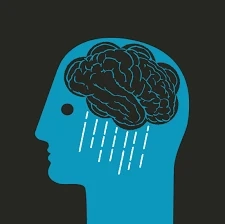Introduction
Mental health is an essential aspect of our overall well-being, and it is encouraging to witness a growing awareness and conversation around this topic in India. In recent years, the emergence of mental health blogs in the country has played a pivotal role in spreading knowledge, breaking stigmas, and fostering a supportive community. In this blog post, we will delve into the flourishing landscape of mental health blogs india, highlighting their significance, diversity, and the impact they have on individuals seeking information and support.
Breaking the Silence: Destigmatizing Mental Health
Mental health blogs in India have been instrumental in challenging societal taboos and dismantling the pervasive stigma surrounding mental health. These platforms provide a safe and inclusive space for individuals to share their personal experiences, struggles, and triumphs, thereby creating a sense of community and normalizing conversations around mental well-being.
By openly discussing mental health issues, bloggers are raising awareness and inspiring others to seek help without fear or shame. These blogs act as catalysts for change, paving the way for a more compassionate and empathetic society where mental health is given the importance it deserves.
Educating and Empowering: Accessible Information and Resources
One of the remarkable aspects of mental health blogs in India is their commitment to providing accessible information and resources. Bloggers often share evidence-based knowledge, practical tips, and self-help techniques to help individuals navigate their mental health journeys. From articles on stress management and coping mechanisms to insights into different mental health conditions, these blogs serve as valuable educational tools, empowering readers with knowledge and equipping them with the necessary tools to take charge of their mental well-being.
Furthermore, mental health blogs often feature interviews with mental health professionals, highlighting the expertise and guidance available to individuals seeking professional help. These insights bridge the gap between mental health practitioners and the general public, fostering a collaborative and informed approach to mental well-being.
Diverse Perspectives: Intersectionality and Inclusivity
Mental health blogs in India encompass a wide range of perspectives, addressing the unique experiences and challenges faced by different communities. Intersectionality and inclusivity are key pillars of these blogs, as they strive to shed light on the interplay between mental health and various factors such as gender, sexuality, religion, caste, and socioeconomic backgrounds.
By amplifying diverse voices and stories, mental health blogs create a more inclusive and representative narrative. This diversity helps individuals find relatable content and fosters a sense of belonging within the mental health community. It also encourages individuals from marginalized communities to seek support and validates their experiences, making mental health care more accessible and relevant to all.
The Role of Technology: Reaching a Wider Audience
The digital landscape has played a pivotal role in the growth and reach of mental health blogs in India. With the increasing penetration of smartphones and internet connectivity, these blogs have the potential to reach a vast audience, even in remote areas. Social media platforms provide an avenue for bloggers to share their content, engage with readers, and create meaningful conversations around mental health.
Moreover, the interactive nature of blogs allows individuals to comment, share their experiences, and seek advice, creating a dynamic and supportive online community. This connectivity fosters a sense of belonging and reduces the isolation often associated with mental health struggles.
Conclusion
Mental health blogs in India have emerged as powerful platforms, contributing to a transformative shift in the way mental health is perceived, discussed, and addressed. By challenging stigmas, disseminating information, and embracing diversity, these blogs are reshaping the mental health landscape, offering support, guidance, and empowerment to individuals across the country.


